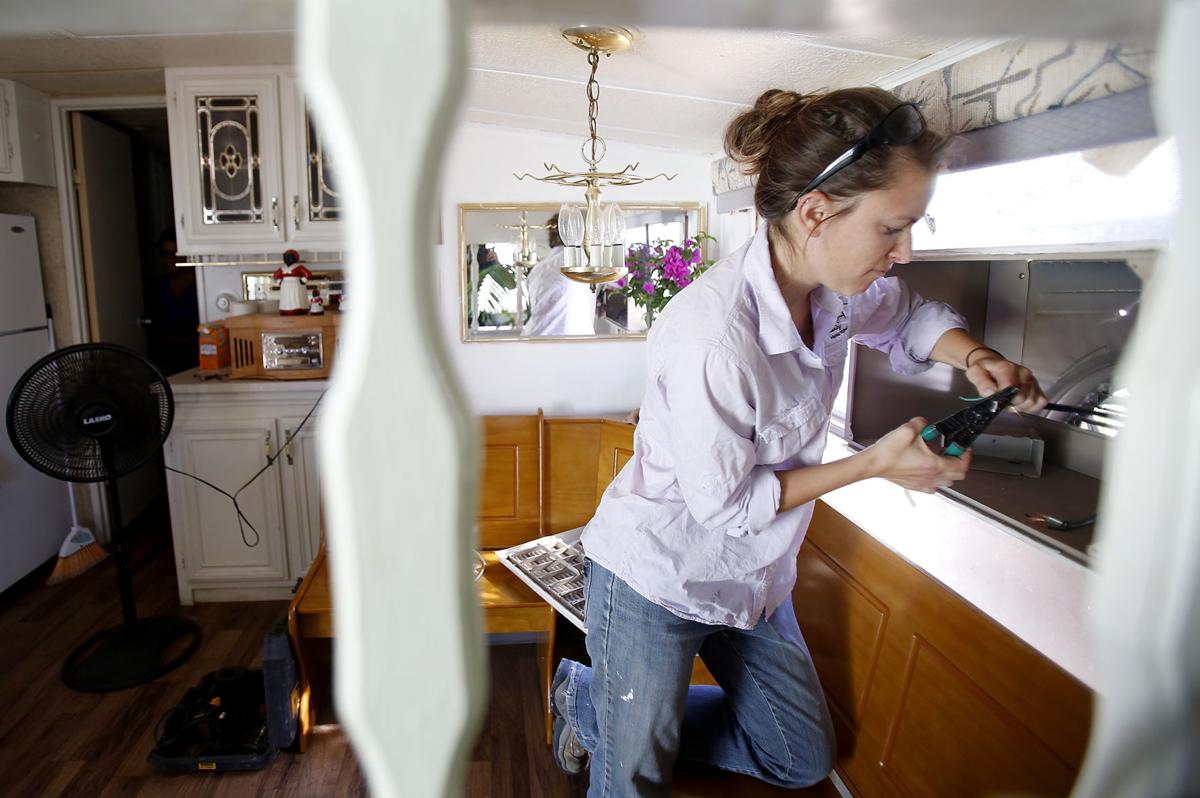What does being told to “stay at home” mean for those whose home is unsafe and unhealthy? For Tucson’s most vulnerable, staying at home may mean staying in a factory-built manufactured or “mobile” home.
We have interviewed 100 mobile home residents, owners, and government officials over the past two years and believe mobile home residents are likely to be particularly hard hit by COVID-19 — if not by the coronavirus itself, then by its social and economic fallout.
Interviews attest to extremely diverse experiences that bear little resemblance to negative stereotypes about mobile home living. Although, most “rarely” or “never” worried about their ability to stay in their homes, 16% worried at least “half the time,” and nearly 40% reported difficulty making housing and utility payments.
Mobile homes comprise 10% of all housing units and are Tucson’s largest source of affordable housing. Mobile homes can mean the difference between being homeless or housed.
The urgency to act now is great, given people living in substandard units with broken windows, leaky roofs, and incomplete plumbing. People like Geri, who relies on a hose left in the sun for hot water. Or Lance, a diabetic in his 70s with open sores who bathes in his carport because he cannot turn around in his bathroom. Under such conditions disinfecting and hand-washing are a challenge.
While extreme, these conditions are not unusual in Tucson, especially for those living in the more than 17,000 units built before national quality standards were enacted in 1976.
Families living in older, often small units, constructed with inferior or hazardous materials, may not be able to effectively self-isolate. For example, the three-generation, seven-person household, headed by a grandmother on oxygen forced to share two bedrooms because one is filled with mold caused by a repeatedly-repaired, but still leaky, roof.
While new mobile homes can be very energy efficient, older mobile homes are twice as expensive to heat and cool as site- built housing. Without adequate cooling, poorly insulated mobile homes are dangerous for the elderly and ill. Even with adequate cooling, electricity bills are often unaffordable for households on fixed or falling incomes.
Mobile home residents typically do not own the land under their homes, making them especially vulnerable to the economic repercussions of the coronavirus. It means that most mobile homes cannot be purchased with a mainstream mortgage. Those who cannot buy with cash are forced, like nearly half of our interviewees, to enter into lending or lease-to-own agreements that are made with little documentation, or on predatory terms with exorbitant interest rates, and may lose their home if their income falls or they are laid off, as is happening to millions right now.
Close-knit “55-plus” communities are susceptible to COVID-19 and are now more vulnerable. The high quality of life and independence they enable are products of neighborliness, but potlucks and lifts to the grocery store may aid the virus’ spread.
Some positive action is being taken to mitigate the impacts of COVID-19 on vulnerable groups. Community organizations are stepping up to help at-risk groups access essentials. Federal, state and local governments are also putting in place moratoriums on evictions and foreclosures, and utilities are suspending shut-offs. But these actions are inconsistent, short-term, and inadequate .
More must be done. Deferred payment obligations must be capped and back payments spread out over time. Otherwise, well-intended programs will trade foreclosure and eviction today for a housing crisis tomorrow. Utility assistance must be increased and sustained through the hottest months, and the supply of safe housing needs to be expand.
Other cities are shoring up the safety net for their most vulnerable populations. We can do it here.





